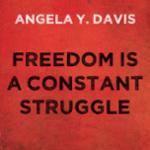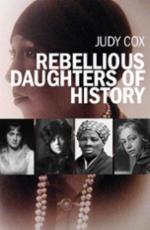""Dispossessed Lives" exemplifies the best new historical scholarship on slavery and gender. Marisa Fuentes's compelling study of women's lives in and around Bridgetown leaves the reader with a clear sense of who these women were and how they navigated the terrain of a Caribbean slave society. At the same time, Fuentes's engagement with the problems of the archive testifies to the powerful entanglements that constitute the afterlife of slavery. This is an important study that fundamentally reshapes the questions we are compelled to ask about the histories of slavery in the Atlantic world." Jennifer L. Morgan, New York University"
""Dispossessed Lives" is an important and complex work that demonstrates how historians can employ a range of interdisciplinary methodologies in order to tease out, in sensitive and thoughtful ways, the hidden corporeality of enslavement, or, put another way, the lives, deaths, and bodies of enslaved women that are buried in the archive." Melanie J. Newton, University of Toronto"
"Original in both content and structure, "Dispossessed Lives" offers a nuanced interpretation of race, gender, sexuality, and the power of the archive in the eighteenth-century urban British Atlantic. Marisa J. Fuentes is masterful with her use of extremely scarce primary source material, forcing us to rethink methodology and teaching us how to understand what is not present in the archives." Erica Armstrong Dunbar, University of Delaware"
"Dispossessed Lives exemplifies the best new historical scholarship on slavery and gender. Marisa Fuentes's compelling study of women's lives in and around Bridgetown leaves the reader with a clear sense of who these women were and how they navigated the terrain of a Caribbean slave society. At the same time, Fuentes's engagement with the problems of the archive testifies to the powerful entanglements that constitute the afterlife of slavery. This is an important study that fundamentally reshapes the questions we are compelled to ask about the histories of slavery in the Atlantic world."--Jennifer L. Morgan, New York University
"Original in both content and structure, Dispossessed Lives offers a nuanced interpretation of race, gender, sexuality, and the power of the archive in the eighteenth-century urban British Atlantic. Marisa J. Fuentes is masterful with her use of extremely scarce primary source material, forcing us to rethink methodology and teaching us how to understand what is not present in the archives."--Erica Armstrong Dunbar, University of Delaware
"Dispossessed Lives is an important and complex work that demonstrates how historians can employ a range of interdisciplinary methodologies in order to tease out, in sensitive and thoughtful ways, the hidden corporeality of enslavement, or, put another way, the lives, deaths, and bodies of enslaved women that are buried in the archive."--Melanie J. Newton, University of Toronto
"Dispossessed Lives exemplifies the best new historical scholarship on slavery and gender. Marisa Fuentes's compelling study of women's lives in and around Bridgetown leaves the reader with a clear sense of who these women were and how they navigated the terrain of a Caribbean slave society. At the same time, Fuentes's engagement with the problems of the archive testifies to the powerful entanglements that constitute the afterlife of slavery. This is an important study that fundamentally reshapes the questions we are compelled to ask about the histories of slavery in the Atlantic world."—Jennifer L. Morgan, New York University
"Original in both content and structure, Dispossessed Lives offers a nuanced interpretation of race, gender, sexuality, and the power of the archive in the eighteenth-century urban British Atlantic. Marisa J. Fuentes is masterful with her use of extremely scarce primary source material, forcing us to rethink methodology and teaching us how to understand what is not present in the archives."—Erica Armstrong Dunbar, University of Delaware
"Dispossessed Lives is an important and complex work that demonstrates how historians can employ a range of interdisciplinary methodologies in order to tease out, in sensitive and thoughtful ways, the hidden corporeality of enslavement, or, put another way, the lives, deaths, and bodies of enslaved women that are buried in the archive."—Melanie J. Newton, University of Toronto






